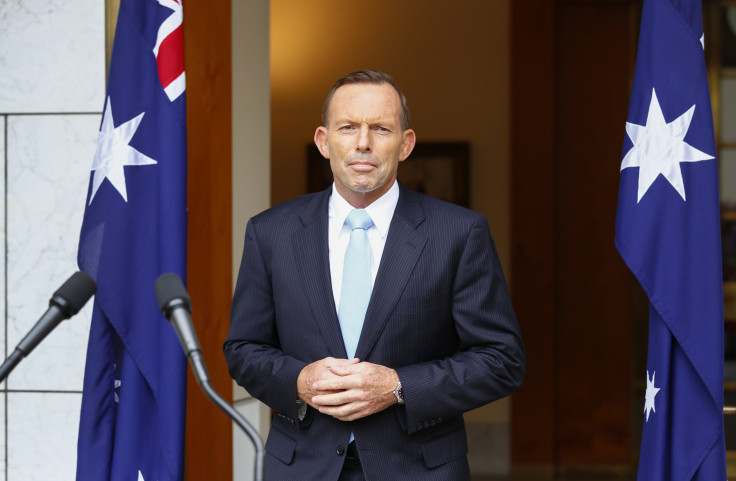Australia Terrorism Crackdown: Abbott Reveals New Citizenship Restrictions

To combat the rising threat of terrorism, Australian Prime Minister Tony Abbott announced a crackdown on national security rooted in more stringent citizenship and immigration laws. He outlined his plans in a speech Monday at the federal police headquarters in Canberra.
"The terrorist threat is rising, at home and abroad, and is becoming harder to combat," Abbott said. After mentioning several ways the country had already begun to crack down on terrorism, he announced the government would begin to "strengthen" immigration laws as it examines alternatives for handling Australian citizens involved in terrorism.
"The government will develop amendments to the Australian Citizenship Act so that we can revoke or suspend Australian citizenship in the case of dual nationals," he said. For Australian citizens involved in terrorism, certain privileges would be suspended, such as the ability to travel into or out of Australia, or access to overseas consular services or welfare payments.
"Australians who take up arms with terrorist groups, especially while Australian military personnel are engaged in Afghanistan and Iraq, have sided against our country. And should be treated accordingly," Abbott said. Abbott is also expected to appoint a new national counterterrorism official, nicknamed by some as a national security czar.
In September, Abbott said, Australia raised its National Terrorist Threat to high, or likely. In December, a gunman attacked a café in Sydney, taking 18 people hostage, two of whom were killed. The gunman also died. "These lone-actor attacks are not new, but they pose a unique set of problems," he said.
Abbott acknowledged but was unapologetic the restrictions could come at the expense of certain personal freedoms. "For too long, we have given those who might be a threat to our country the benefit of the doubt," he said. "There is always a trade-off between the rights of an individual and the safety of the community."
© Copyright IBTimes 2024. All rights reserved.






















